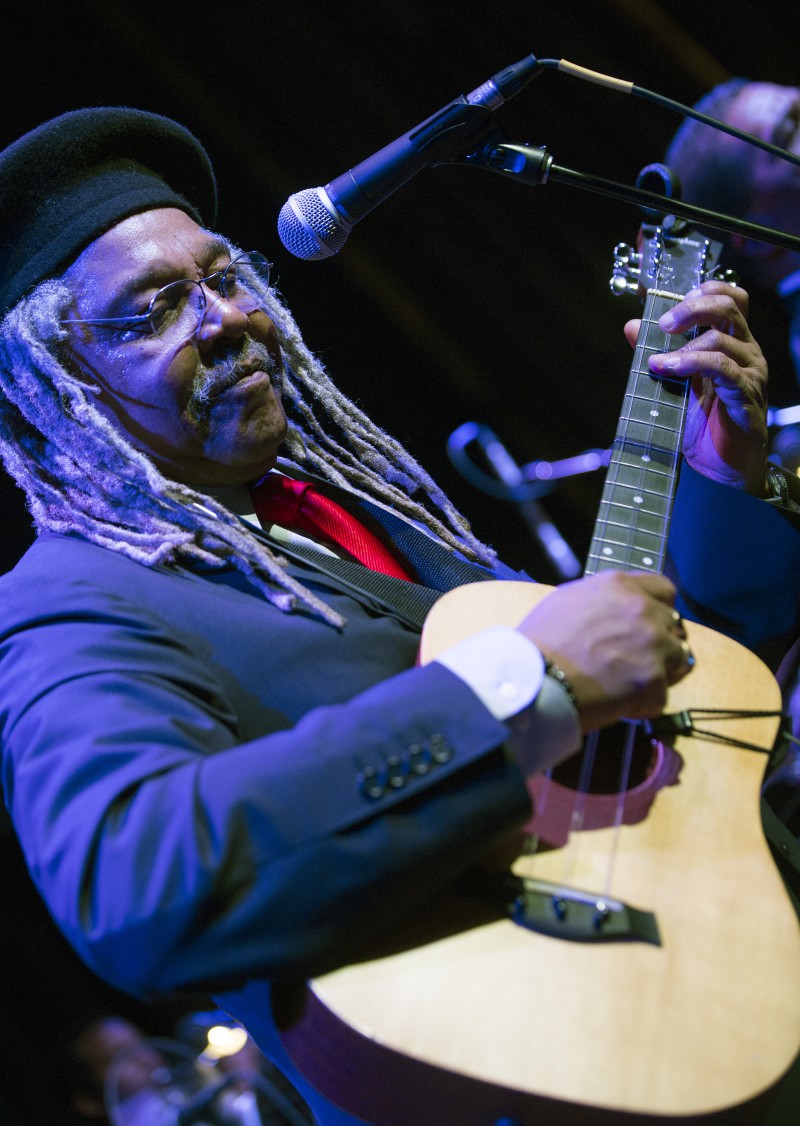Blacktown Workers Club, March 29
7.5/10

It’s a fine line between the good and the great, and Cuba’s Juan de Marcos Gonzalez has worked both sides of that line. In the 1970s he formed the exceptional Sierra Maestra (whom some will remember at the Basement in the 1990s), and then in 1996 he was pivotal in bringing together the greats of a previous generation of Cuban musicians and singers as the Buena Vista Social Club. Even then he already had the Afro-Cuban All Stars project underway, initially overlapping with the Buena Vista group.
But time has had its way. The almost mythical members of Buena Vista have passed on, and now Gonzalez is, himself, the older generation, leading a 12-piece band consisting of players half his age (including his two daughters). In this performance he never played his trademark tres guitar, but stuck to lead and backing vocals while swishing at a guiro.
The absence of the tres made for a starker, less elastic ensemble sound, with the traditional three percussionists, joined by three trumpets, piano, bass, electric vibraphone, bass clarinet and lead singer Emilio Suarez. A fine example of a Cuban son ensemble, it is closer to Sierra Maestra’s sound than the Buena Vista Social Club’s. Suarez has an arresting voice and the quality of the musicianship is exceptional, notably from timbale player Caleb Michel, conga player Tany Allende, pianist Oldrich Gonzalez and the trumpeters.
But the difference is that fine line. What made the Buena Vista Club so genre-transcendent was the way the charisma of the performers became palpable in the music, itself. The likes of Compay Segundo and Omara Portuondo (to name just two) don’t come around so often, and this band, for all its fireworks, lacked that ephemeral charisma to cross generational and geographical divides; to lift it from good to great. Nonetheless, Gonzalez has done all anyone could do in a lifetime to hold aloft the torch of some of the world’s most precious musical idioms.